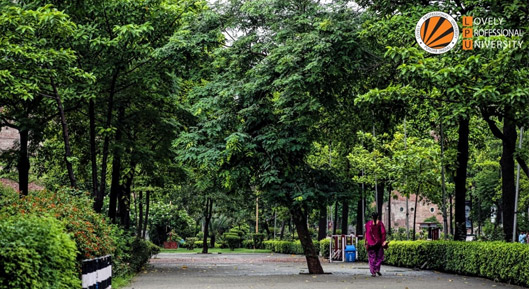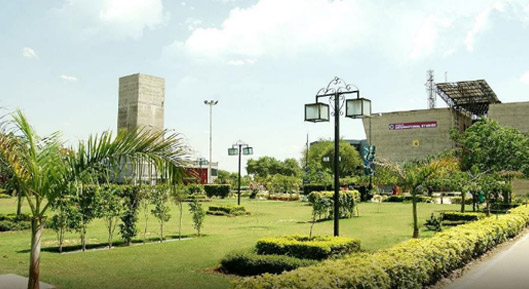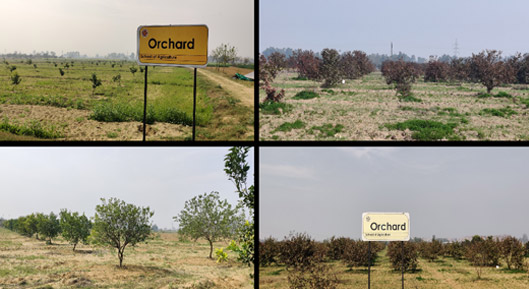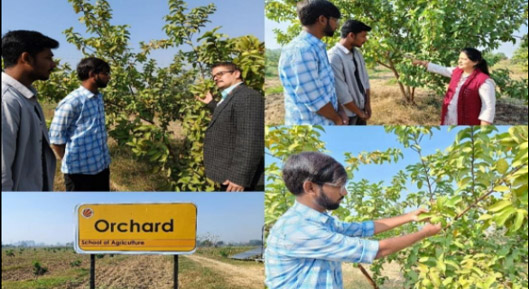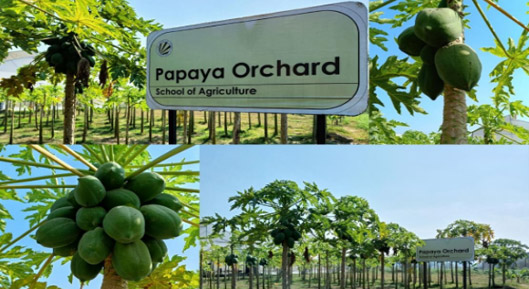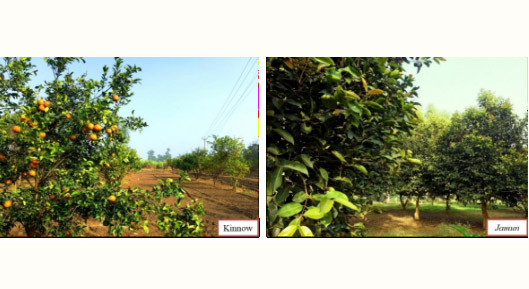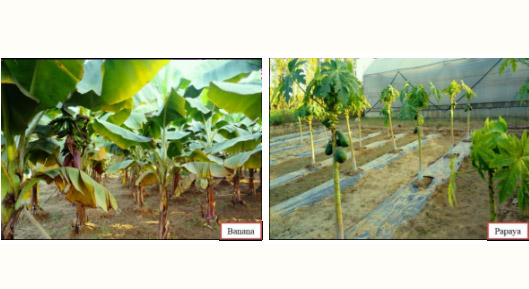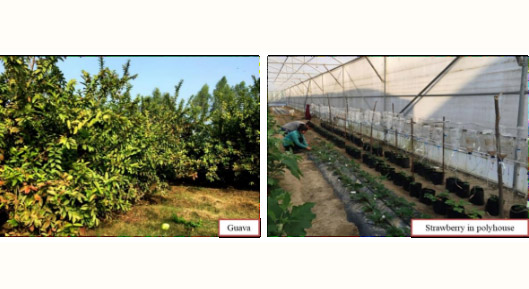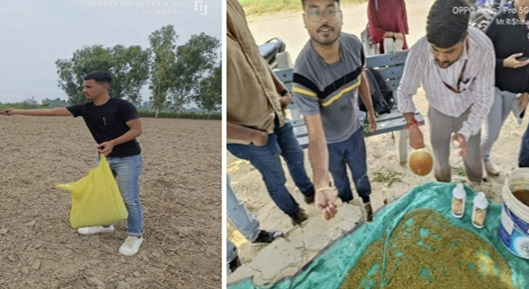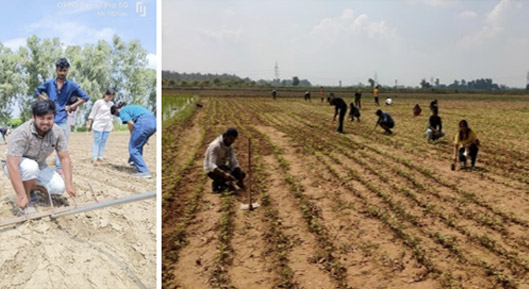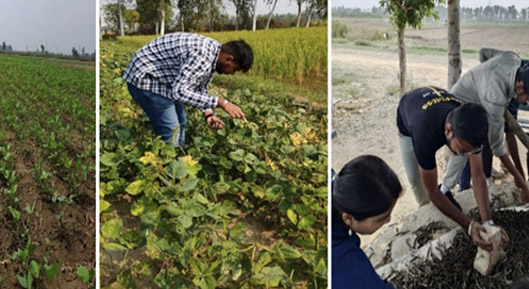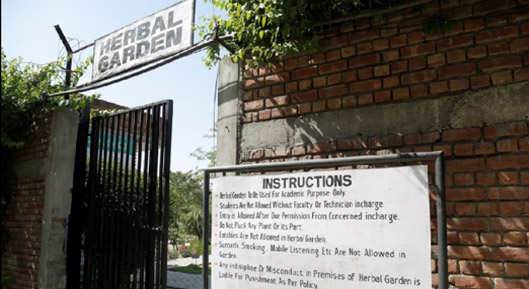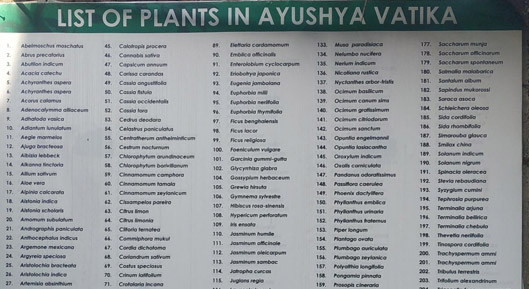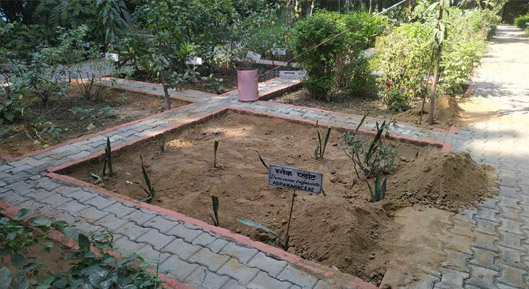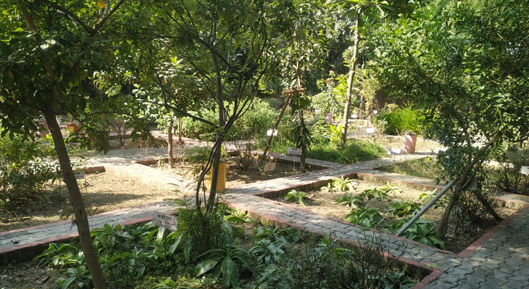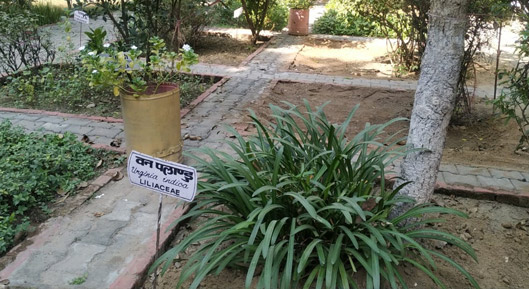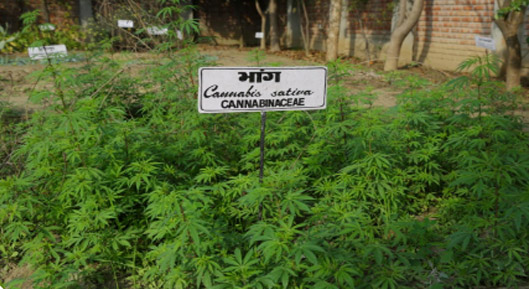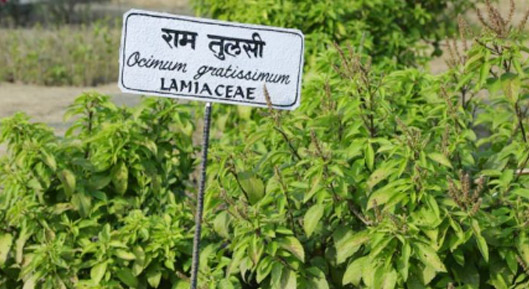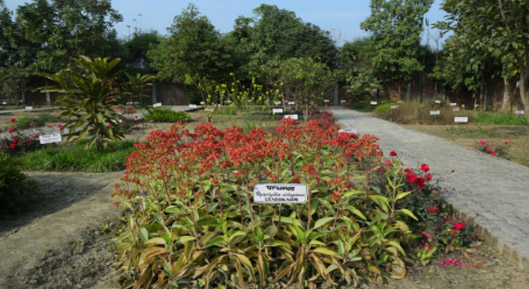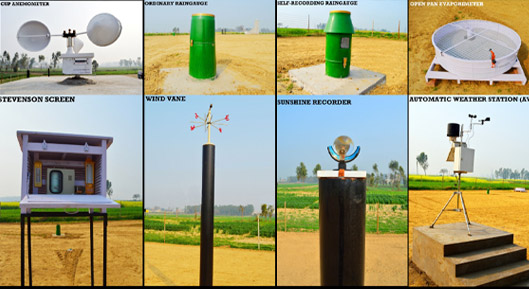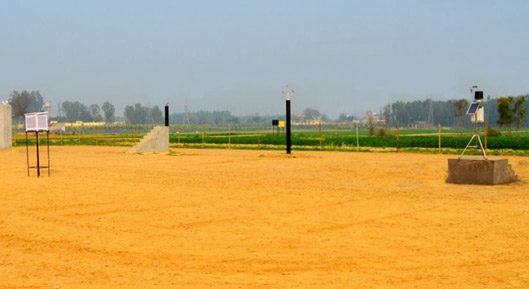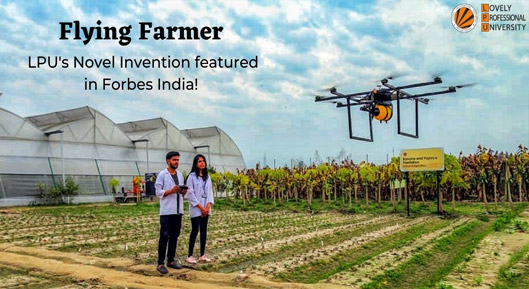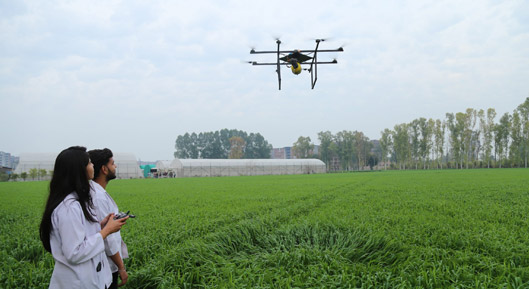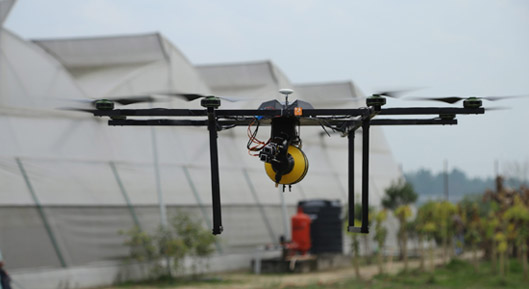Lovely Professional University (LPU) is deeply committed to the sustainable utilization of natural resources, ensuring the preservation and enhancement of biodiversity on campus. With a rapidly growing population, responsible management of resources is key to sustaining life on land. LPU leads by example, promoting innovative agricultural practices and efficient natural resource use to foster a green, eco-friendly campus environment. This lush landscape not only improves air quality but also supports biodiversity, contributing to a vibrant ecosystem on campus. The well-maintained gardens and green areas serve as a backdrop for various activities, fostering a sense of community and well-being among the university population. The greenery covers a significant area, creating inviting spaces for students and staff to relax and engage with nature.
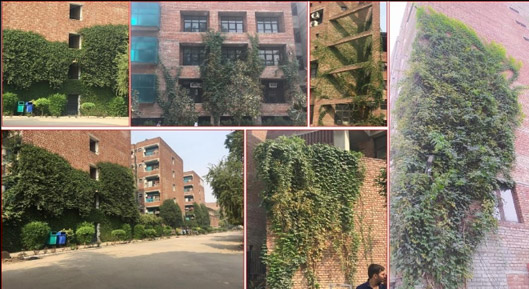
Vertical Farming at LPU
To reduce the urban heat island effects and to save energy at LPU campus, a strategy of vertical farming has been adopted using Creepers. The establishment of a vertical farm at LPU involves careful planning and execution. The university is investing in the latest technologies, training faculty and students in vertical farming practices, and collaborating with agricultural experts and industry partners.University's Commitment towards Land Conservation and Afforestation
LPU is deeply committed to the responsible use and conservation of its land resources, recognizing the importance of preserving its existing landscape while addressing the challenges posed by urbanization and expansion. To mitigate the potential negative impact of land use changes, the university has adopted a forward-thinking strategy focused on afforestation as a key tool for land conservation.As part of this initiative, LPU is replacing planned new building infrastructure with afforested areas, thus prioritizing the creation of forested land within the campus. This approach not only enhances land conservation but also promotes the sustainable use of existing land, ensuring the university maintains a balance between development and environmental stewardship.
The primary objectives of the university's initiative are as follows
- Conservation of Existing Land: The University is dedicated to preserving the natural beauty and ecological balance of its campus by conserving and maintaining existing land.
- Bolstering Biodiversity: By converting land into forested areas, the university aims to create new habitats for local flora and fauna, thereby enhancing biodiversity.
- Mitigating Environmental Impact: Afforestation reduces the environmental footprint of the university's expansion plans, as new buildings often require land clearing and construction.
LPU Orchards
Fruit Orchard:The area of 40 acres in the university has been developed as orchard where fruits of various climatic zones have been grown. The Fruit Orchard at Lovely Professional University (LPU) serves as a vibrant hub for sustainable agriculture and biodiversity. This initiative showcases a diverse range of fruit-bearing trees, providing students with hands-on experience in horticulture and sustainable farming practices. The orchard not only enhances the campus's green landscape but also promotes environmental awareness and healthy eating habits among the university community. By cultivating various fruits, the orchard plays a crucial role in research, education, and contributing to local food production, fostering a deeper connection between students and the environment.Glimpses of fruit orchards at LPU
Common fruits like Guava and Kinnow are widely cultivated, alongside other plantations such as Jamun, Aonla, Pear, Peach, Plum, Papaya, Banana, Pomegranate, and Grapes, which are grown in significant areas. This diverse range of crops provides abundant opportunities for both UG and PG students to participate in hands-on practical training and conduct valuable research, greatly enhancing their academic and scientific experiences in the field of horticultural studies.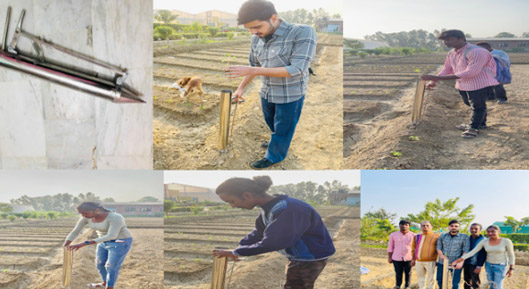
Dehydrated Fruits and Vegetables Processing
The module was introduced in 2022 to provide training to the students on the preservation of horticultural produce by the process of dehydration and quality analysis. The students are skilled on different methods for value addition, preservation of seasonal fruits and vegetables. The students had prepared onion powder, potato powder, ginger powder, banana powder, tomato powder, fenugreek powder etc. More than 50 students have been trained in this module and prepared various products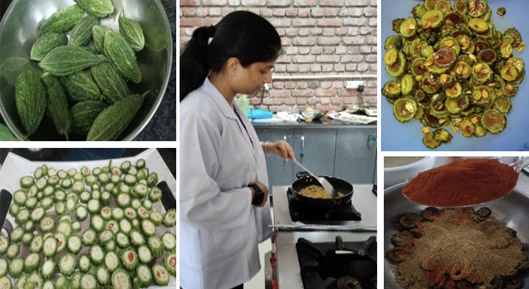
Post Harvest Technology and Value Addition
This experiential learning unit was established in 2022 to provide skills for processing and value addition in fruits and vegetables in order to reduce the postharvest losses in horticultural crops. Students are trained for identification of existing processed food products in market related to fruits and vegetables; assessment of the fundamental requirements of value addition in fruits and vegetable processing; development of several processed products and their cost analysis; analysis of food quality and consumer requirements related to the products; and marketing and sale of the developed products such as jam, jelly, candy, marmalade, tomato paste, tomato sauce, ketchup etc. More than 50 students are involved in this unit and developed different post-harvest processing product.Organic Agriculture
An isolated land of about 7.5 acres is allocated for this activity where students learn about the cultivation of different crops like cereals, vegetables, pulses etc. under organic farming practices. Students are also getting exposure to the market of organic agriculture through training and visits to different organic farming visits. Since the establishment, more than 250 students were trained till date.The organic farm also fosters community involvement through workshops, seminars, and farmer training programs, promoting organic farming practices among local farmers and encouraging sustainable agricultural practices in the region.
LPU’s commitment to organic agriculture not only enhances food security and environmental sustainability but also plays a vital role in educating future agricultural leaders. By prioritizing organic methods, LPU is paving the way for a healthier and more sustainable agricultural landscape.
AYUSH VATIKA - Herbal Garden
'Ayushya Vatika', 'Ayushya Vatika,' the herbal garden of Lovely Professional University, was established in 2003 and is registered under the National Medicinal Plant Board, AYUSH (The Ministry of Ayurveda, Yoga & Naturopathy, Unani, Siddha, and Homoeopathy), and ICAR-DMAPR (The Directorate of Medicinal and Aromatic Plants Research), India. Spanning an area of 2970 square meters, Ayushya Vatika houses a diverse collection of around 250 medicinal plants, including rare and endangered species.In addition to the conservation and exhibition of these diverse medicinal plants, a multidisciplinary team of researchers from Agriculture, Biotechnology, Botany, Biochemistry, Ayurveda, and Pharmacy actively conducts research on the plants in Ayushya Vatika, exploring various aspects of their medicinal properties.
Medicinal Plants
Lovely Professional University (LPU) actively supports Sustainable Development Goal (SDG) 15 by maintaining medicinal plants and herbs on its campus. This initiative aligns with LPU's commitment to promoting biodiversity and contributing to sustainable land ecosystems. These medicinal plants play a crucial role in preserving local biodiversity, educating students about traditional knowledge, and fostering research on natural remedies. The presence of these plants enhances the campus ecosystem and reflects LPU’s dedication to environmental sustainability and conservation efforts.Development of equipment to improve biodiversity
Agrometeorological observatoryThe agrometeorology observatory available on agricultural farm is used for providing hands on training on collection of meteorological data related to weather conditions on day-to-day basis. This data is also used research scholar for the validation of research data and discussion over experimental findings. Equipped with advanced meteorological instruments, the observatory collects and analyzes data on temperature, humidity, rainfall, and wind patterns. This information is invaluable for farmers and researchers, aiding in the development of effective agricultural practices and enhancing crop management strategies. The Agrometeorological Observatory at Lovely Professional University (LPU) serves as a critical resource for understanding the interplay between agriculture and weather conditions.
Flying Farmer - An Inexpensive Drone
The "Flying Farmer," part of a live project at Lovely Professional University, was developed by 45 students and 5 faculty members to revolutionize pesticide treatment for farmers. This wireless, sensor-equipped drone enables farmers to detect weeds, assess pesticide needs, and perform yield and biomass mapping. It also measures soil nutrient content, reducing crop loss and boosting productivity. The drone can target specific areas for pesticide spraying, preserving up to 85% of pesticide use. With a 25-minute airtime, machine vision algorithms, and infrared sensors, it accurately identifies weed locations and promptly alerts farmers. Moreover, Forbes India featured this innovative project in their "Innovations Built to Help Farmers" coverage.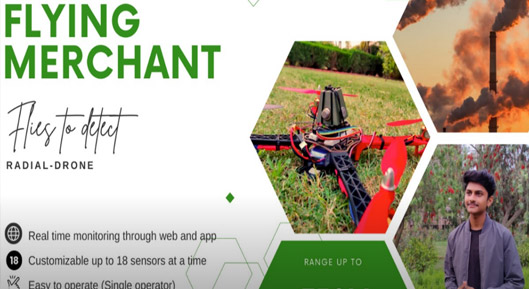
Flying Merchant
A team of innovators from LPU's School of Polytechnic, led by Chukka Gowtham Kumar and mentored by Gagandeep Singh, is revolutionizing engineering with advanced air monitoring technologies. They have developed modular drones equipped with interchangeable gas sensors, enabling customization for specific applications such as detecting methane leaks or monitoring urban air quality. These drones are highly sensitive, capable of detecting even trace amounts of gases, which is critical for safety and environmental monitoring. Real-time data transmission allows for immediate decision-making, enhancing safety and operational efficiency.


